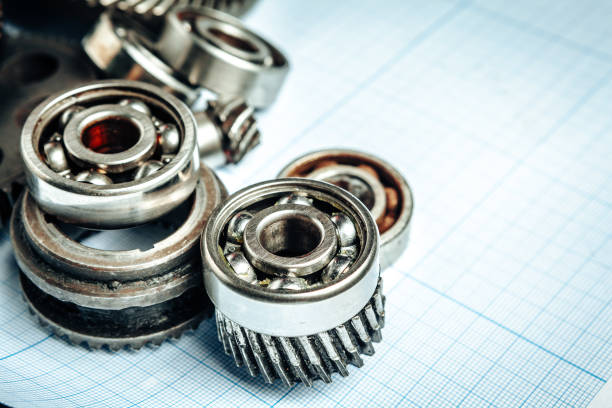What if there were ways to significantly boost the lifespan and performance of a piston ring? In automotive engineering, it plays a crucial role in maintaining engine efficiency and durability. As technology evolves, so do the materials used in these vital components.
Material innovations in piston rings are revolutionizing how we think about engine
performance. These advancements enhance the durability and improve the overall efficiency of engines. Let’s read about them in detail.
Advanced Materials for Enhanced Durability
Traditional rings often struggled with issues like wear and thermal expansion. However, recent advancements have introduced materials that address these difficulties. Modern ones are now made from advanced alloys and composites that resist high temperatures and wear more effectively. For instance, materials like steel alloys and ceramic coatings have become common. These innovations help reduce friction and extend their life.
Composite Materials for Better Performance
Composite materials are another game-changer in rings. By combining different materials, manufacturers create rings that offer a balance of strength and flexibility. These composites are designed to handle extreme conditions without compromising performance.
The use of carbon composites, for example, provides excellent thermal stability and reduced friction. This means engines can operate more smoothly and efficiently, even under high stress.
The Role of Coatings in Piston Ring Technology
Coatings have become an integral part of modern piston ring technology. They are applied to the rings’ surface to improve their performance and longevity. Coatings like DLC (Diamond-Like Carbon) and nitriding offer superior hardness and wear resistance. These coatings help reduce friction between them and the cylinder walls. As a result, engines run more efficiently and with less wear over time.
The Impact of Heat-Resistant Materials
Heat resistance is a crucial factor for rings, given the extreme temperatures they encounter. Recent innovations focus on materials that can withstand these high temperatures without degrading.
Heat-resistant materials like high-temperature alloys and ceramics are now used in these rings. These materials help in maintaining the integrity of the rings and ensure that engines perform optimally under high heat conditions.
Durability Enhancements from Innovative Designs
Innovation isn’t just about materials; it also involves design improvements. Modern rings benefit from advanced manufacturing techniques that enhance their durability. For instance, precision-engineered grooves and optimized ring profiles improve sealing and reduce leakage. These design enhancements ensure that they fit perfectly and function efficiently, contributing to overall engine performance.
Benefits of Lightweight Materials
Lightweight materials are becoming increasingly popular in piston ring manufacturing. Reducing the weight of the rings can lead to several benefits, including lower fuel consumption and improved engine responsiveness. Materials like aluminum alloys and specialized polymers are used to create lighter ones. These materials not only contribute to fuel efficiency but also help in reducing the overall strain on the engine.
The Role of Manufacturers in India
India has emerged as a significant player in the global market for these rings. Manufacturers in India are at the forefront of adopting and developing new material technologies. They are continuously innovating to meet the demands of modern engines. By leveraging advanced materials and manufacturing techniques, these manufacturers contribute to the global advancement of piston ring technology.
Sustainability and Eco-Friendly Materials
As environmental concerns grow, sustainability in manufacturing processes is becoming increasingly important. The piston rings manufacturers in India are exploring eco-friendly materials that minimize environmental impact.
Materials that are recyclable or have a lower carbon footprint are being integrated into piston ring production. These sustainable practices not only help in reducing waste but also contribute to greener manufacturing processes, aligning with global efforts to protect the environment.
Material innovations in piston rings are transforming the automotive industry. With advancements in materials and design, these components now offer enhanced durability and efficiency. As the technology continues to grow, it promises even greater performance and reliability for engines worldwide. These innovations ensure that engines run smoother, last longer, and perform better than ever before.




